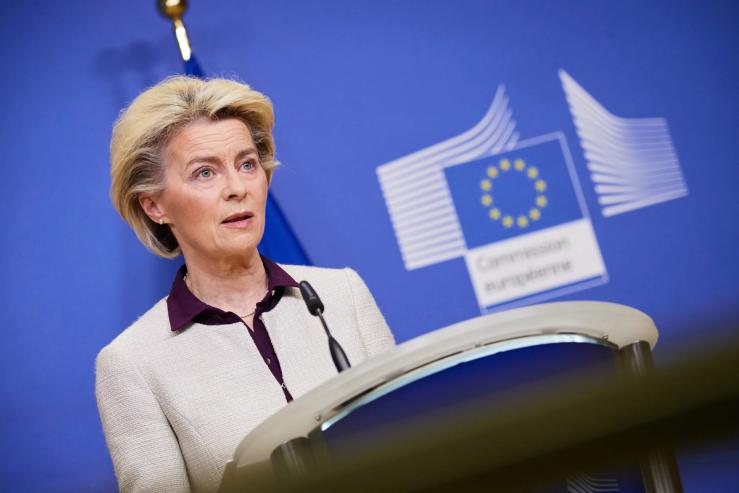The News
Russian internet trolls launched a disinformation campaign to discredit this summer’s Olympic Games in Paris and spread fears of terrorism at the event, according to a Microsoft report released on Sunday.
The efforts included a feature-length film called Olympics Has Fallen, which used an AI-generated voiceover impersonating the actor Tom Cruise. It’s the latest in a string of reports about Russian disinformation targeting Europe: Also on Sunday, The Guardian reported that leaked internal documents from a Moscow-backed legal defense fund showed the financing of propaganda websites aimed at Europeans, while The Washington Post revealed that leaders of an online news site aimed at Americans received money from both Russian and Iranian media outlets.
SIGNALS
Europe is struggling to keep up with Russian disinformation
European Commission President Ursula von der Leyen recently identified Russian disinformation as one of the biggest threats to European democracy. But so far Europe’s response has been “patchy and uncoordinated” despite Russia ramping up its campaigns ahead of the European Parliament election this week, a policy fellow at the European Council on Foreign Relations argued. But the EU’s anti-disinformation task force StratCom operates on a shoestring budget and is “under-resourced” for the fight, two EU officials told Reuters.
Russian disinformation is becoming more sophisticated
A recent report by OpenAI found that bad actors were using AI tools to manipulate the public without much success. However, Russia has graduated from running often clumsy “troll farms” like its infamous Internet Research Agency to pursuing subtler techniques aimed at sowing doubt: Russia is “taking elements of reality in these [propaganda] campaigns and then warping them to create a different impression,” one of Germany’s most senior diplomats told the Financial Times. Russia combines reporting of real events with disinformation so that both versions of events appear to hold merit, a report by the Atlantic Council’s Digital Forensic Research Lab found. Disinformation operations in West Africa, for example, once seemed obviously bogus but now recruit local African political players and influencers to reframe legitimate grievances in ways favorable to Russia, the Wilson Center argued.



